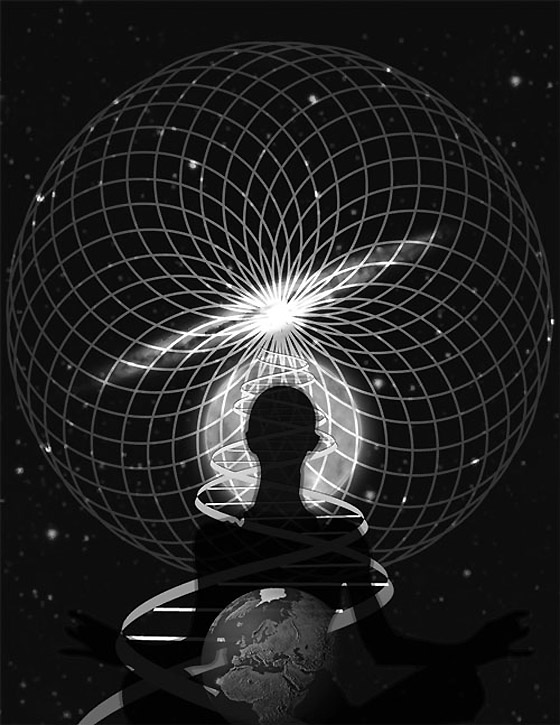 OCBBM | The final fallacy which I wish to discuss is both important and interesting, and I have left it for the last because I think it deals the coup de grace to the everyman theory of consciousness. Where does consciousness take place?
OCBBM | The final fallacy which I wish to discuss is both important and interesting, and I have left it for the last because I think it deals the coup de grace to the everyman theory of consciousness. Where does consciousness take place?
Everyone, or almost everyone, immediately replies, in my head. This is because when we introspect, we seem to look inward on an inner space somewhere behind our eyes. But what on earth do we mean by ‘look’? We even close our eyes sometimes to introspect even more clearly. Upon what? Its spatial character seems unquestionable. Moreover we seem to move or at least ‘look’ in different directions. And if we press ourselves too strongly to further characterize this space (apart from its imagined contents), we feel a vague irritation, as if there were something that did not want to be known, some quality which to question was somehow ungrateful, like rudeness in a friendly place.
We not only locate this space of consciousness inside our own heads. We also assume it is there in others’. In talking with a friend, maintaining periodic eye-to-eye contact (that remnant of our primate past when eye-to-eye contact was concerned in establishing tribal hierarchies), we are always assuming a space behind our companion’s eyes into which we are talking, similar to the space we imagine inside our own heads where we are talking from.
And this is the very heartbeat of the matter. For we know perfectly well that there is no such space in anyone’s head at all! There is nothing inside my head or yours except physiological tissue of one sort or another. And the fact that it is predominantly neurological tissue is irrelevant.
Now this thought takes a little thinking to get used to. It means that we are continually inventing these spaces in our own and other people’s heads, knowing perfectly well that they don’t exist anatomically; and the location of these ‘spaces’ is indeed quite arbitrary. The Aristotelian writings, 23 for example, located consciousness or the abode of thought in and just above the heart, believing the brain to be a mere cooling organ since it was insensitive to touch or injury. And some readers will not have found this discussion valid since they locate their thinking selves somewhere in the upper chest. For most of us, however, the habit of locating consciousness in the head is so ingrained that it is difficult to think otherwise. But, actually, you could, as you remain where you are, just as well locate your consciousness around the corner in the next room against the wall near the floor, and do your thinking there as well as in your head. Not really just as well. For there are very good reasons why it is better to imagine your mind-space inside of you, reasons to do with volition and internal sensations, with the relationship of your body and your ‘I’ which will become apparent as we go on.
That there is no phenomenal necessity in locating consciousness in the brain is further reinforced by various abnormal instances in which consciousness seems to be outside the body. A friend who received a left frontal brain injury in the war regained consciousness in the corner of the ceiling of a hospital ward looking down euphorically at himself on the cot swathed in bandages. Those who have taken lysergic acid diethylamide commonly report similar out-of-the-body or exosomatic experiences, as they are called. Such occurrences do not demonstrate anything metaphysical whatever; simply that locating consciousness can be an arbitrary matter.
Let us not make a mistake. When I am conscious, I am always and definitely using certain parts of my brain inside my head. But so am I when riding a bicycle, and the bicycle riding does not go on inside my head. The cases are different of course, since bicycle riding has a definite geographical location, while consciousness does not. In reality, consciousness has no location whatever except as we imagine it has.
23. It is so obvious that the writing ascribed to Aristotle were not written by the same hand that I prefer this designation.


0 comments:
Post a Comment